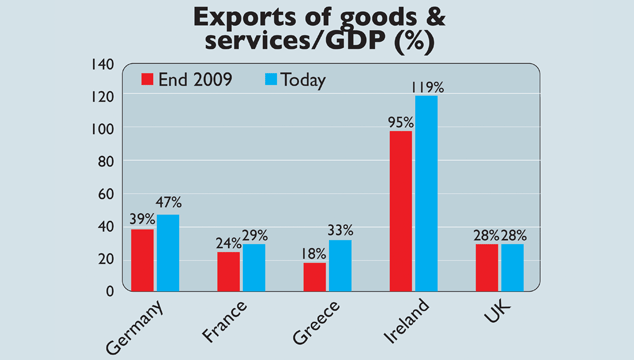
If Ireland can get its act together and recover, why can’t Greece? Many people have been asking this question in the past few years, says Paul Marson of fund management firm Monogram, and this chart provides most of the answer. Since 2009, the euro has declined by 20% in real, trade-weighted terms, or against a basket of trading partners’ currencies.
A cheaper currency was a boon for Ireland as its exports then were worth almost as much as its overall national income (GDP is the sum of consumption, investment, government spending, and exports minus imports).
Now they are worth 119%. By contrast, in 2009 Greek exports comprised just 18% of Greece’s GDP, the lowest share in the single currency bloc. Thanks to the shrinking economy, that figure has now jumped to 33%. Ireland also made more progress reducing labour costs and “experienced less than half the cumulative austerity that Greece has been subjected to”, notes Marson.